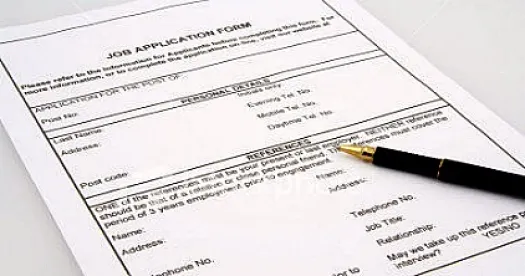Employers normally require new hires to complete job applications and certify that the information contained in their applications is true and accurate before hiring them. Job applications serve many laudable purposes: you can evaluate education, ensure that the applicant has the required experience and know-how to do the job and retrieve contact information for former employers from whom you can learn about the applicant's skills and abilities before he or she is brought into your workplace. You can compare respective applicants on an "apples-to-apples" basis. A recent case now adds another reason: an application can also provide employers with a defense to later litigation where the new hire was untruthful or omitted material facts on his or her application.
In Van Hoven v. Pre-Employee.com, Inc., 156 Wn. App. 879 (2010), the plaintiff applied for a position with a hospital and signed a background authorization under penalty of perjury in which he affirmed that he had not been charged with or committed any crime. The hospital contracted with a consumer reporting agency to conduct a background check, as it did for all applicants. The hospital hired the plaintiff "conditioned" on a positive background check. The agency reported that the plaintiff had been guilty of possession of marijuana and drug paraphernalia. The hospital confronted the plaintiff with the report, who admitted that he had been guilty of possession of marijuana and drug paraphernalia but that, as part of a plea bargain, one of the charges had been dismissed. He also claimed to have been confused by the question - "Have you ever been convicted of any crime?" - though he did not deny the results of the background check or provide any clarification. The hospital rescinded its conditional employment offer, for it would not have initially hired him with such charges, and, more importantly, because he had lied on his application. The consumer reporting agency later corrected the report to explain that the marijuana possession charge had been, in fact, dismissed in a plea bargain. The plaintiff sued the consumer reporting agency for defamation.
Consumer reporting agencies are highly regulated entities. Washington has its own statutes that regulate consumer reporting agencies. See RCW 19.182, et al. These statutes provide that a consumer like the plaintiff cannot assert a claim for defamation, invasion of privacy or negligence with respect to the reporting of information unless false information is furnished with malice or willful intent to injure. That is an elevated standard. In Van Hoven, the plaintiff could produce no evidence that the consumer reporting agency had acted with actual malice or intent to injure. The agency thus had immunity from the plaintiff's claims.
The Van Hoven court noted that the plaintiff could also not establish damages. To establish a defamation claim, a plaintiff must show (1) falsity, (2) an unprivileged communication, (3) fault and (4) damages. Because the plaintiff did not deny the results or provide any clarification of the background check, and the hospital stated that it would not have hired him if he had disclosed such charges, he had no damages from the consumer reporting agency's alleged inaccurate background check. The Van Hovencourt noted that the plaintiff had lied on his application when he answered "no" to the question of whether he had been convicted of any criminal offense. Even discounting the misinformation about his marijuana possession charge, he was still convicted of the drug paraphernalia charge. Without damages, he had no defamation claim.
The takeaways from Van Hoven are that employers should always require new hires to fill out applications, which mandate a certification for truth and accuracy. Employers should not accept a resume in lieu of a job application because resumes do not normally have certifications for truth and accuracy nor do they specify that the applicant will not be hired or can be terminated for misrepresenting information. Applications reveal education and background experience and provide third-party contact information to learn about the new hire's skills and abilities. Further, if the applicant lies or omits information, that conduct can serve as a basis for refusing to hire or terminating upon its discovery. And, in litigation, a plaintiff can have his or her damage award reduced or limited by application lies or omissions. This is known as the "after acquired evidence" doctrine. The Van Hoven court also emphasized that such information can serve as a defense to a claim of damages - if you lie, you cannot expect the employer to hire you. The other takeaway is that the employer correctly shared the background check with the plaintiff, providing him an opportunity to respond or rebut the information before taking adverse action. Such a step is highly advisable to avoid future litigation.



 />i
/>i

